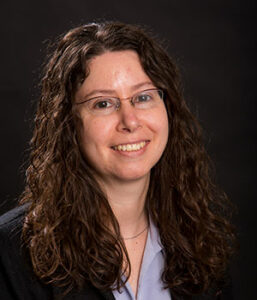Educational Psychology: Educational Statistics and Measurement MS
Student learning is measured more than ever before, and that means that the education field needs professionals who have expertise in educational statistics and measurement.
Program Type
Master’s
Program Format
On Campus
Why Choose our MS Program?
After completing your master’s studies, you’ll be ready to:
- Participate in applied research projects.
- Translate research findings for application in educational settings.
- Design and build assessment instruments.
- Assist professional educators with analyses and interpretations of data.
I pursued the ESM program at UW-Milwaukee because I wanted to gain advanced training in quantitative education research. My hope was to use these kinds of methods to make my home, the Milwaukee community and their schools, a better place.

UWM’s Department of Educational Psychology offers a master’s program for students who are interested in specializing in Educational Statistics and Measurement.
This program will provide you with the knowledge necessary to execute research and evaluate and critique existing research — a valuable asset whether you’re planning to put your skills to use in the workforce right away or go on to doctoral studies.
Ranked No. 22 Best Master’s in Assessment and Measurement degree program of 2023 by Intelligent.com.
Career
You’ll find our graduates working in universities, state and federal agencies, test publishing organizations, school systems, state departments of education, marketing research companies and research centers, among other settings.
Students in the Educational Statistics and Measurement MS program choose either a non-thesis or a thesis track. The purpose of the non-thesis program is to provide basic research methodology coursework for students who are planning to go straight to work in positions that require educational measurement and research methodology. The program is also an excellent option for those who want to broaden their knowledge of measurement and research methodology for personal or professional improvement. The thesis program is primarily intended for students planning to go on to doctoral studies.
The Graduate School provides a range of resources for student professional development on its website.
Program Requirements
Courses in Educational Statistics and Measurement expose you to the general principles of inferential statistics, research methodology and experimental design, psychometrics, and categorical and qualitative research methods.
Students are required to complete 30 credits for the master’s degree. You must complete 12 credits of core courses, which include 624, 724, 720, and 728; six credits in Learning and Development; and 12 elective credits, six of which must be in Educational Statistics and Measurement. Your program of study is developed in consultation with your assigned advisor. A full-time student can typically complete the program in two years.
In addition to course requirements, you must either complete a thesis or pass a final comprehensive examination.
Course Rotation
The Course Rotation Schedule (PDF) is intended to help you and your advisor plan your coursework schedule.
Application Process
All application materials must be submitted through UWM Graduate School’s Panthera Application System.
Please pay close attention to the Educational Statistics and Measurement MS preferred deadlines.
- Final Deadline for Spring Admission: Final application deadline is Oct. 1 for Spring admission.
- Priority Deadline for Fall Admission: For applicants who wish to be considered for available types of financial assistance available on campus, we recommend completed applications by Dec. 1 for admission the following Fall.
- Final Deadline for Fall Admission: Final application deadline is Feb. 15 for Fall admission.
The program may consider applications submitted after these deadlines on a case by case basis, though we suggest you apply as early as possible. UWM’s Graduate School recommends students apply one year before they intend to start.
Note: The program requires three letters of recommendation. These letters must be submitted through the application’s electronic recommendation feature by the recommenders themselves. Letters uploaded or sent by the applicant will not be accepted.
Educational Statistics and Measurement faculty have expertise in educational measurement topics such as item response theory, differential item functioning and educational assessment, as well as in educational statistics topics such as general linear models including multiple regression, structural equation models and hierarchical linear models.
- Professor, Educational Psychology
- Director, Consulting Office for Research & Evaluation
- Director, Educational Statistics and Measurement MS/PhD
- azen@uwm.edu
- Enderis Hall 771



